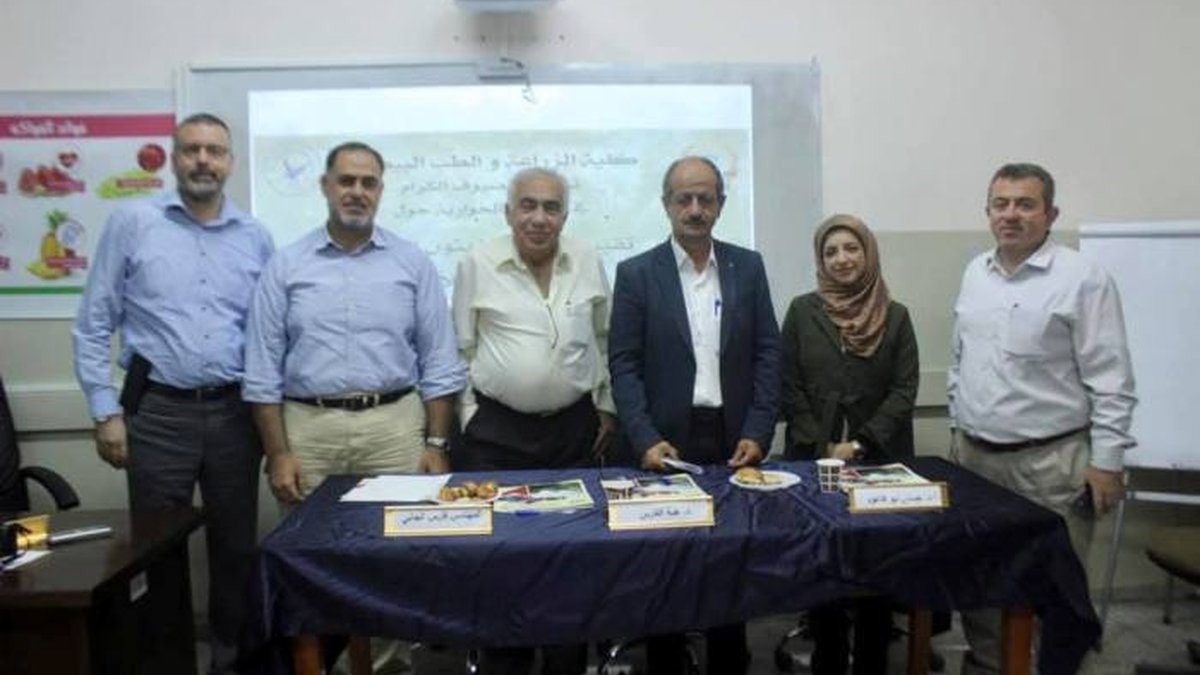
Within the Faculty of Agriculture and Veterinary Medicine, the Department of Plant Production and Prevention organized a discussion workshop to assess the current olive season in Palestine. The attendees included governmental, academic, and civil society representatives. Attendees came from the Ministry of Agriculture, the Palestine Technical University, the Palestine Academy for Science and Technology, and The Agricultural Relief, in addition to senior students of the department.
The workshop was opened by the Dean of the Faculty; Dr. Heba Al-Faris, who emphasized on the economic, cultural and political importance and significance of the olive sector, and the connotations of the olive tree in Palestine, as it is a symbol of the resilience and steadfastness to the land. Dr. Al-Faris talked about the role of An-Najah National University in developing the agricultural sector in Palestine and providing all necessary experiences and applied scientific research that benefits the olive sector and farmers.
Engineer Faris Al-Jabi discussed the main problems and challenges that faced the olive sector during the current season, the impact of climate change on olive trees, and the benefits of supplemental irrigation of the tree.
The representative of the Ministry of Agriculture spoke about the role of the ministry in advancing and developing the olive sector, which included providing instructions to farmers about proper practices in pruning and picking olives, in addition to monitoring the work of the olive pressing mills and developing its operations.
The attendees came out with a number of recommendations, which included:
- The importance to conduct the pruning of the olive tree during at specific times.
- The importance to intensify the monitoring activities over the olive pressing mills, because it is a key factor that affects the quality of olive oil.
- The need to reduce the use of herbicides in controlling unwanted grass in olive fields.
- The importance to carry out ploughing, as it contributes to enhancing the approbation of the soil to rain, and to reduce pests.
عدد القراءات: 299





